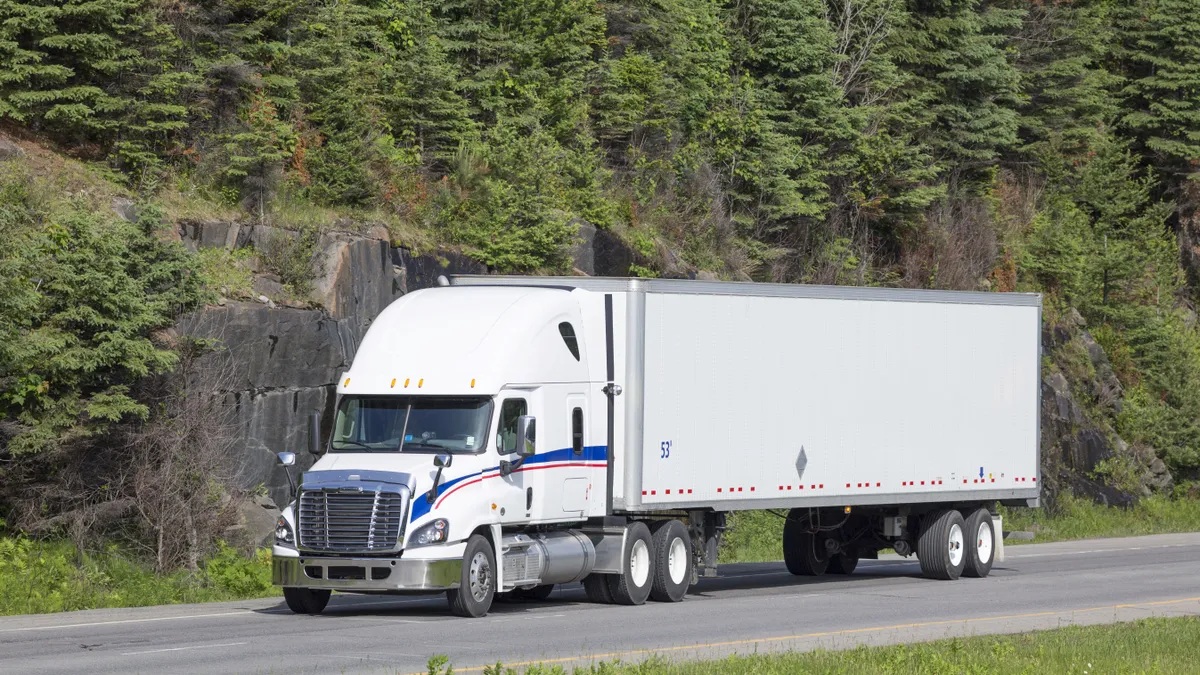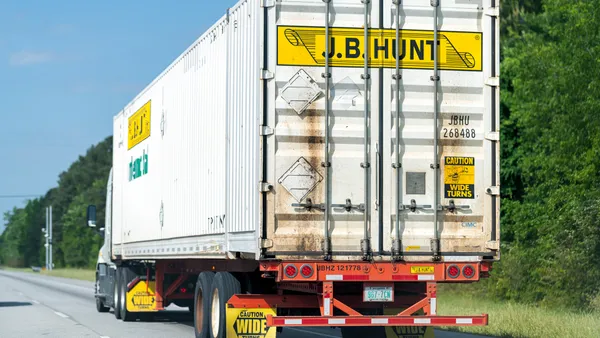TFI International projects it will achieve $75 million in savings due to the U.S.’ One Big Beautiful Bill Act tax package, the company said on a July 28 earnings call.
The money would not be gained without the recent tax law, CFO David Saperstein told analysts. The projection is based on a cash tax benefit involving capital expenditures over a five-year period, with $40 million realized in the first two years.
Additionally, company executives told investors they were optimistic the tax plan and administration's budget would help the trucking industry finally emerge from an approximately three-year freight recession.
Saperstein said he expects the cash tax savings will spread throughout the economy to companies doing capital expenditures, and those companies represent TFI's customers. CEO Alain Bédard further called out investments in industrial sectors, housing and schools as potential drivers for the economy.
“We feel way better that we're finally going to get out of this freight recession,” Bédard said, while cautioning that market demand has continued to lag.
Truck orders have been choppy in recent months, with some carriers lowering forecasts, such as Knight-Swift Transportation Holdings and Werner Enterprises. Schneider National, which reported its earnings later than those carriers, reported July 31 that its capital expenditure plan would remain the same.
At the same time, tariff-related uncertainty continues to weigh on industrial end market demand, Bédard said. “A lot of our customers are just waiting on the sideline” for clarity on the direction of the economy and when the uncertainty would end, he said.
Meanwhile, TFI’s profitable U.S.-Canada LTL traffic was down, the company reported on the call. For the segment as a whole, its operating income was $73.6 million for Q2, a 33% decrease from a year ago.
Even though industrial sentiment has lagged in recent years, TFI purchased Daseke over a year ago, in part, because the company anticipated a turnaround in that sector, according to the company. “We were maybe one year too early,” Bédard said.
The company is working to integrate Daseke’s operations and reduce its truckload operating ratio, and that turnaround could make significant gains in early 2026, according to Bédard. If the market helps, that could happen more quickly, he said.
“We're still doing really well, but we're down, right?” Bédard said, adding that once U.S. tariff issues involving Canada and Mexico are resolved, freight should return.












